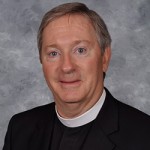My Thoughts on Great Leadership

by Reverend Dr. D. Stuart Dunnan
One abiding thought about leadership that has become stronger over my 19 years as headmaster of the same school is the “otherness” of leadership, by which I mean a leader’s responsibility and calling to think and act at times apart from his or her community.
In my role as headmaster, for instance, I need to function in the future even as I administer and encourage in the present, enrolling next year’s students, hiring next year’s faculty, planning improvements to campus.
I also need to function outside the school “looking in,” even as I run the school “from within.” I therefore need to challenge my colleagues to remain responsive to the outside world, even as I need to “sell” our distinct culture as a school to the outside world. Finally, I need to see the “bigger picture,” connecting the different constituencies of the school, students, faculty, parents, trustees, and alumni, without belonging to any.
Similarly, students called to leadership roles in the school, most notably prefects, who assist the hall masters on their halls, need to be willing to stand apart from their peers to do their job well. They need to report anyone violating a major school rule, and they need to enforce the honor code. Again, they need to see the “bigger picture,” and they need to be willing to “stand apart.” This is a huge challenge for an eighteen year old to accept, but an invaluable one if he or she is going to lead for the good of all of us.
To be honest, the quality of any year at Saint James is largely determined by the quality of the prefects—their courage and their ownership of the school, their integrity and, quite frankly, their ambition.
This role requires three skills. Like Jesus praying in the Garden of Gethsemane or the proverbial “captain of the ship,” a good leader needs to be able to function in some ways and in certain circumstances alone and therefore to give up the goal of popularity, or even at times collegiality. I always remember the advice of my most admired predecessor who served as headmaster for 29 years: “Don’t worry whether it is popular or not; just worry whether it is right or wrong.” Certainly this willingness to stand alone requires an inner strength and an abiding confidence, which is often difficult for sensitive extroverts like me to achieve and maintain, so this remains a personal challenge.
Secondly, the leader needs to empathize and communicate well to draw the whole together, to explain the bigger picture, to inform the present of the future, and the inside and outside of each other.
Finally, the leader needs to be brave, which is in the end the greatest test of leadership, not just brave in relationship to the “crowd,” but also brave in relationship to the future, and thus ultimately in relationship to one’s self: confident and optimistic, committed and engaged.
I teach a class of AP Modern European History to a group of talented and thoughtful seniors, which is in many ways a course in leadership, figures like Elizabeth I, Frederick the Great, and Winston Churchill distinguishing themselves from “the others.” Surely what distinguishes them is this: their great confidence in themselves, their ability to inspire others, and their courageous hope for the future.
For there is this truth which history does teach us: losing generals fight the last war; winning generals fight the next one.
Reverend Dr. D. Stuart Dunnan
 The Revd. Dr. D. Stuart Dunnan has been headmaster of Saint James School for 18 years. He has presided over a remarkable revival of this historic Episcopal boarding school in Western Maryland.
The Revd. Dr. D. Stuart Dunnan has been headmaster of Saint James School for 18 years. He has presided over a remarkable revival of this historic Episcopal boarding school in Western Maryland.
Father Dunnan holds a bachelor’s and a master’s degree in history from Harvard University and a masters and a doctoral degree in theology from Oxford University in England. As an educator and preacher, he is particularly interested in the moral and spiritual formation of teenagers, and thus eager to “encourage their goodness” and to “challenge their selfishness” within the context of their actual lives._
